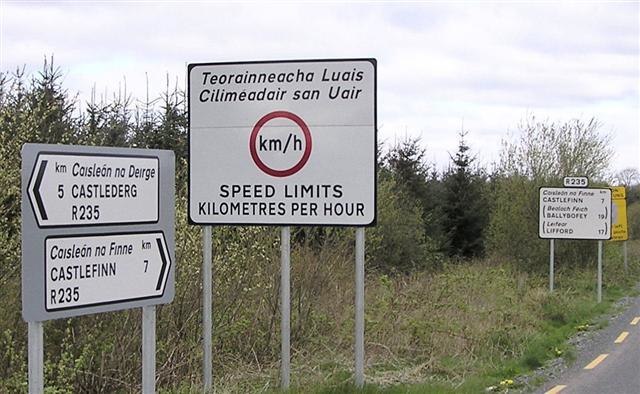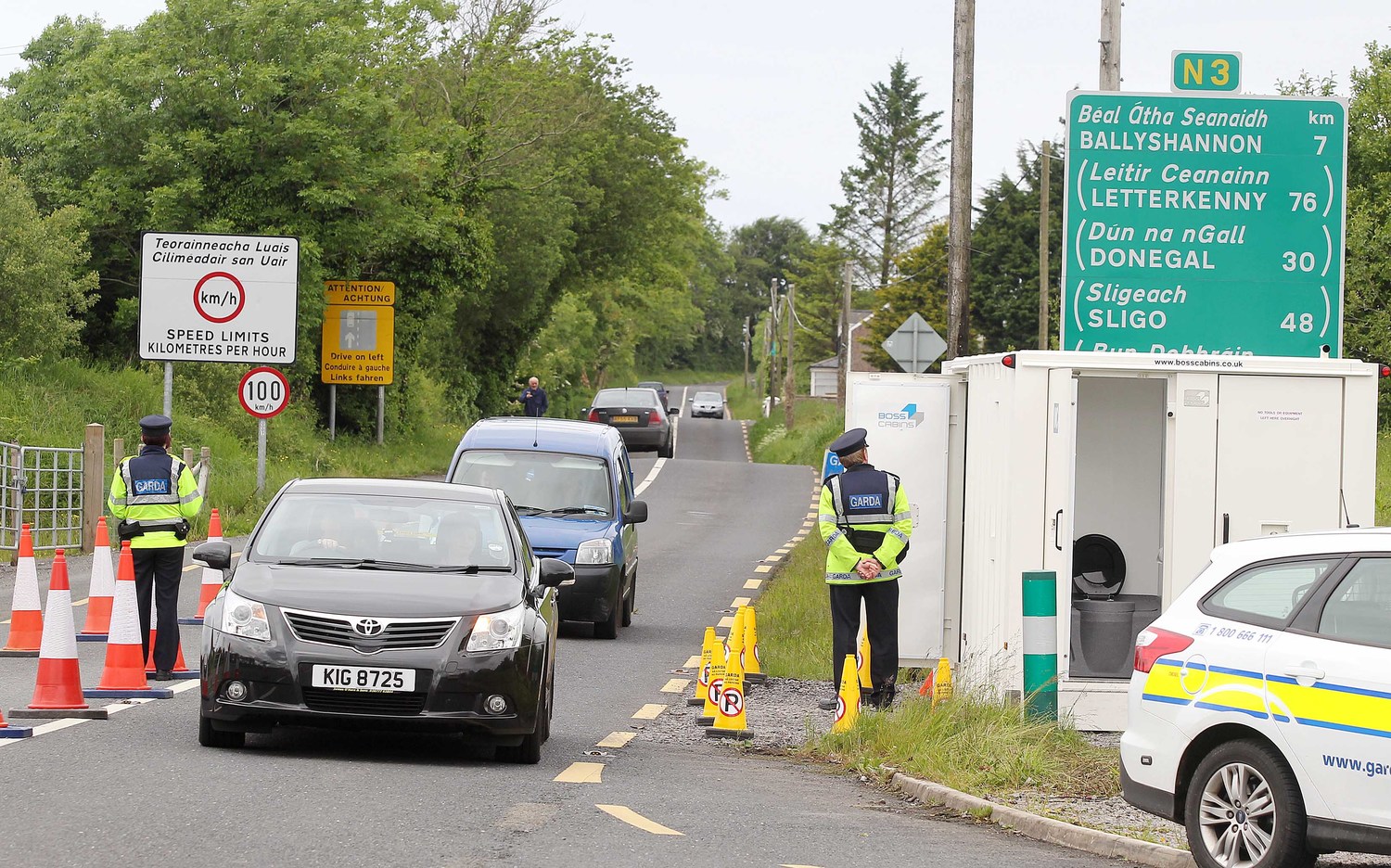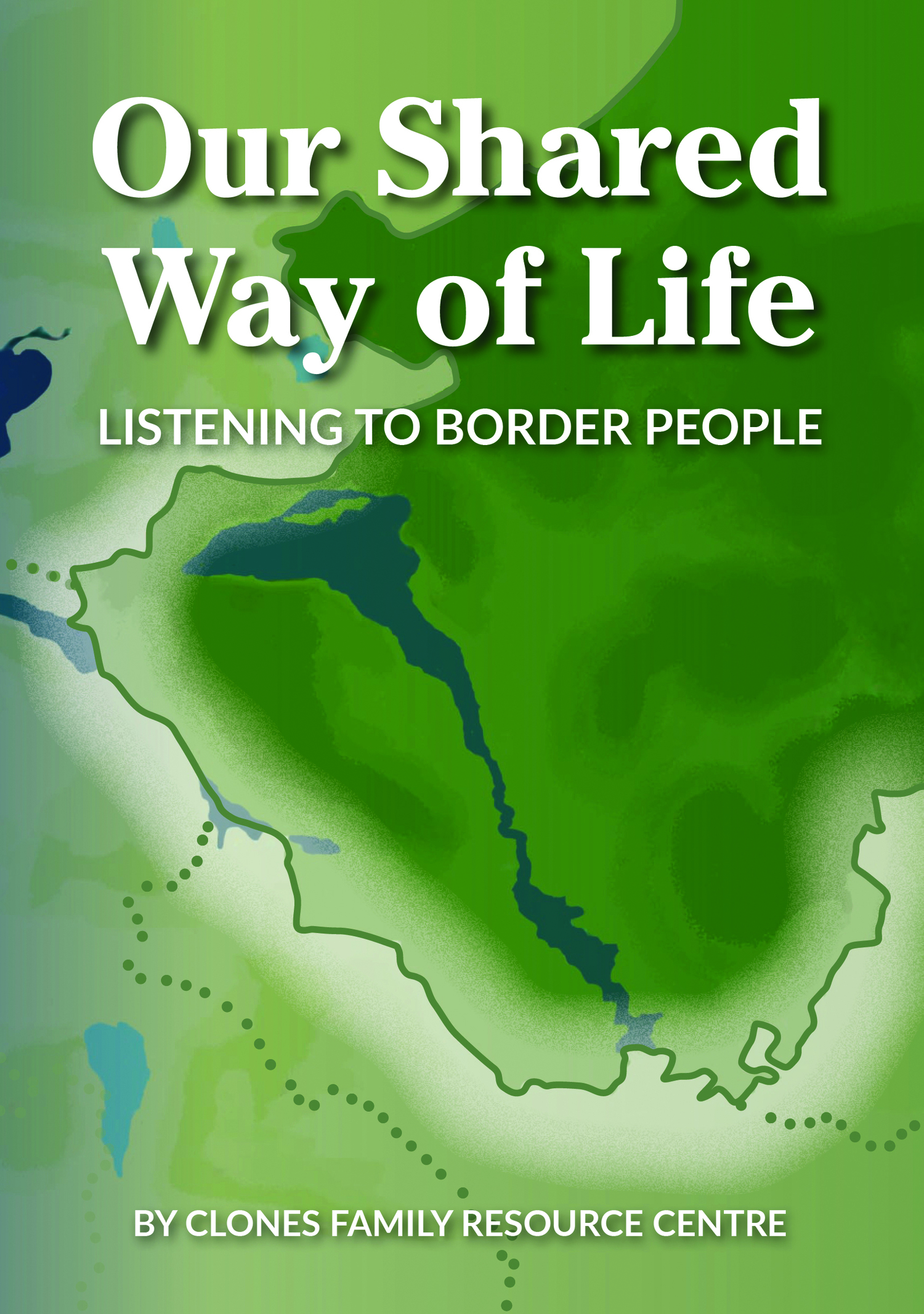PEOPLE living along the border are already exploring what a new Ireland may mean to them, a community project has found.
Around 40 people from both nationalist and unionist backgrounds were interviewed for ‘People on the Border - Exploring Our Shared Way of Life’, on topics including identity, faith, history and the border question.
The project aimed to give a voice to border people, who often feel their opinions are ignored by those in power in Dublin, Belfast and London.
The interviews, undertaken on behalf of Clones Family Resource Centre in Co Monaghan, found that many people living on the border were thinking about constitutional change, even if they had varying hopes of where it may lead.
Interviewees, who were granted anonymity, also discussed how identities are becoming more fluid amid evolving relationships between the different communities.
One republican from the south said he believed “we will have our united Ireland and it will not be too long”.
But he added: “We’re not talking about absorbing the six counties into the 26. We want to re-frame a new (Irish) constitution.”
One northerner from a Protestant background said he remained sceptical of Irish unity.
“Why would you want something that you don’t see any benefit in?” he said.
“I just simply do not see any accommodation for our point of view.”
The debate around Ireland’s future has ramped up amid census results showing that Catholics now outnumber Protestants for the first time since Northern Ireland was created in 1921. Last month’s Northern Ireland council elections also saw a nationalist majority for the first time.
While some nationalists are pushing for a border poll, many unionist politicians are refusing to join the constitutional debate because they feel it would mean accepting that a united Ireland is inevitable.
During a series of in-depth interviews, many people living along the border said they were thinking about what a new Ireland may look like.
The interviews indicated that Brexit was a game changer for many, and unsettling for some.
Sarah, a Protestant from Co Fermanagh, said she was alarmed by “flag-waving” pro-Brexit campaigning.
“I still see myself as Northern Irish, but I totally rejected my British passport,” she said.
“I will always travel on my Irish passport because I don’t want to be associated with that jingoism.”

A speed limit sign on the border between Castlederg, Co Tyrone, and Co Donegal. Photo from Kenneth Allen, Wikicommons
New book
The interviews have been compiled in a new book ‘Our Shared Way of Life’, which is being launched in Clones tomorrow.
Interviewees included people from border areas in Armagh, Derry, Donegal, Fermanagh, Cavan, Monaghan and Leitrim.
In her preface to the book, journalist Susan McKay said those who took part in the project were “honourable and decent people who have been generous enough to speak openly and share their hopes and fears".
The book includes chapters on the changing priorities of people born after the Good Friday Agreement; violence along the border; Orangeism and falling church attendance; climate change; the cost of living crisis; isolation and the lack of infrastructure in remote areas, along with the constitutional question.
Clones Family Resource Centre said it hoped the project would lead to greater understanding between different border communities.
“Peace and reconciliation lie at the heart of our activities, leading to understanding of diversity and difference among the people who live in our border area,” a centre spokesman said.
The book showed hugely differing opinions on the border question.
Some of the Protestants interviewed said they were open to debates on a united Ireland, while some Catholic interviewees said it was not the right time for a border poll.
However, most interviewees agreed that more work needs to be done, particularly by the Irish government, to educate people on what a poll would actually mean.
Lisa, from Co Monaghan, said a united Ireland would offer opportunities to improve health and education across the island.
“Down here our health system is not great, but I think it’s fractionally better than Northern Ireland,” she said.
Gerard, from Co Derry, said the Irish government must do more to prepare for constitutional change.
“They need to really start having working groups on health, economy, education, flags, emblems, all those things which are going to matter in the debate,” he said.
“And then provide leadership in having proposals around these things, going out and consulting with a civic forum, bringing people north and south together.”
He said many people have a flexible political outlook.
“Border people are extremely important because they’re the ones who’ve lived their lives there and will be hugely affected. Talk to the polarised communities,” he said.
“There’s probably 20% of nationalists and 20% of unionists who are totally committed to their political viewpoint and you’re never going to change them. But we need to listen to them and let them say what they’re saying.
“Then there’s that 40 or 50% in the middle, we need to be talking to them. What would make you want to be part of the UK? What would make you convinced to be part of a united Ireland?”
Frank, a nationalist from Co Leitrim, said there was a need for greater debate.
“I have no interest in a border poll now,” he said.
Tommy, a nationalist from the Fermanagh-Donegal border, said it would be difficult to convince people in Cork and Kerry of the desirability of integrating the island.
“I think you need to start from the bottom up and start with the relationships between people. Get better roads, better railway lines, enable people to communicate and grow,” he said.
Another interviewee, Liam, said citizens in the Republic will have to accept change.
“That’s not to say we throw everything away,” he said.
“You keep some of your own culture, but you add to it when you bring others.”
Kyle, a northern Protestant who grew up in a Fermanagh housing estate, said he was enthused by the “exciting opportunity” of creating a new Ireland.
“We’re not locked into what your father and mother’s experiences were, we’ve broken the shackles of that,” he said.
Marius, a republican from Co Monaghan, said all communities must be involved in building a new Ireland.
“The republican project has always been about building a new Republic,” he said.
“Those of us who are republicans need to listen. Not simply to the unionist community, but all the new communities that we shape a new and exciting vision.”
However Tom, a Protestant from south Armagh, said he believed that a united Ireland would not happen “in my lifetime”.
But he added: “Going forward who knows? It’s never black and white.
“Outside of the border region, a lot of ordinary people north and south don’t particularly care one way or the other. Eventually it will come down to cash as opposed to any ideology.”
But he expressed concern that a united Ireland would not be a “safe place” for Protestants.
Cecil, a Protestant from the Republic, said a united Ireland is inevitable but “a long way down the road”.
Our Shared Way of Life will be launched at Monaghan County Library in Clones, Co Monaghan, at 6.30pm on Thursday, June 8

